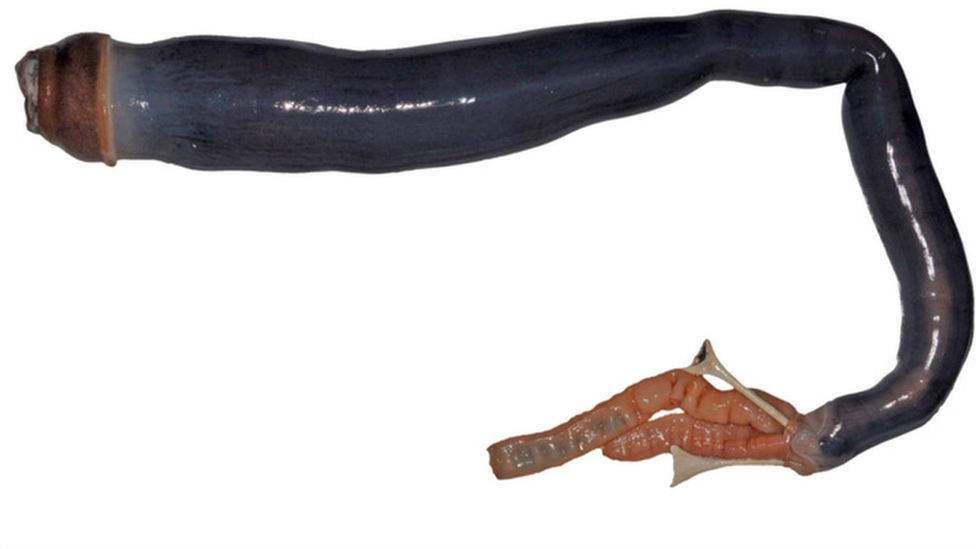First world shipworm farm developed in Devon
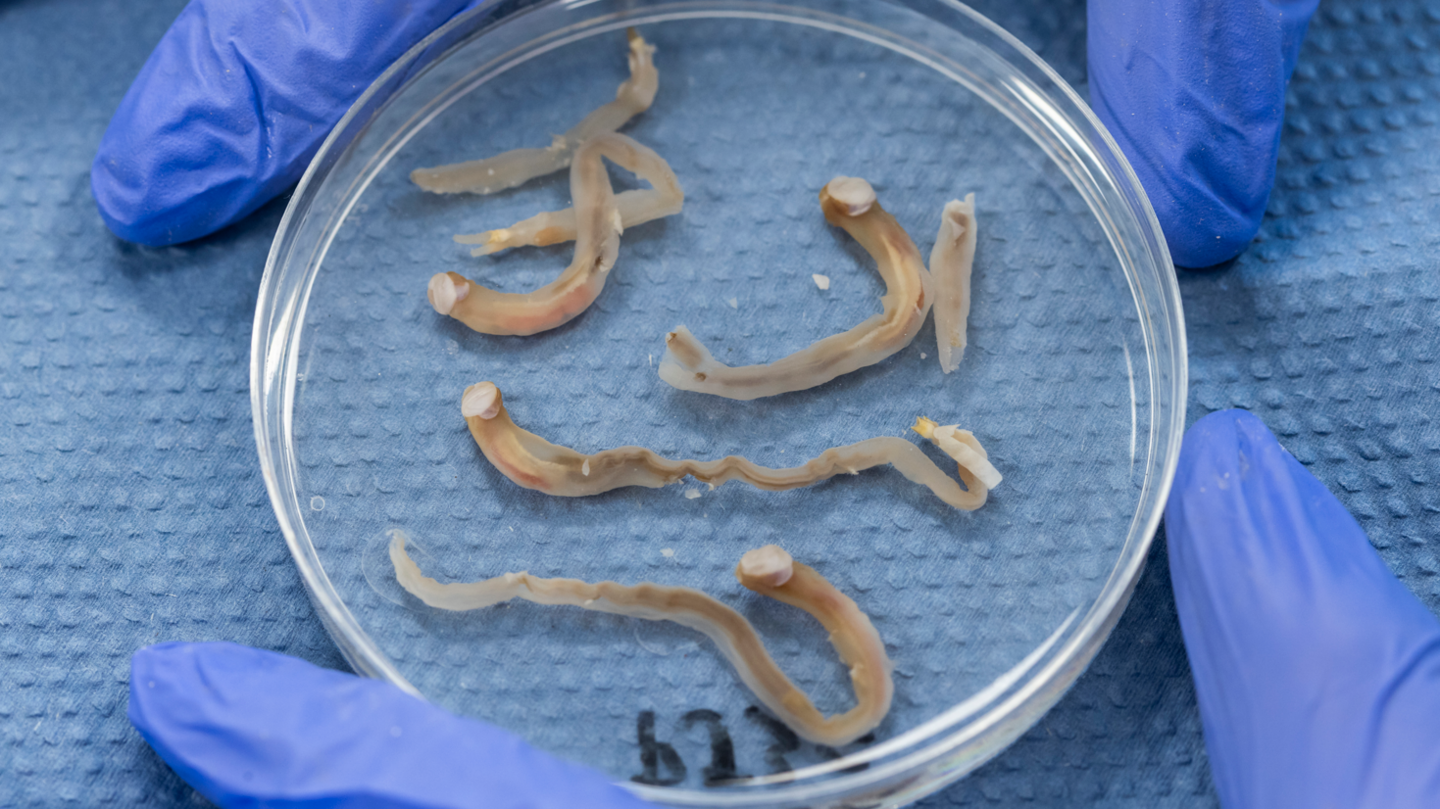
Scientists hope the naked clams will be a new alternative food source "without the environmental cost"
At a glance
A marine pest is being described as a "highly nutritious" clam by scientists at Plymouth University, who say people can eat it
Scientists said they hoped to design the first system in the world to farm so-called naked clams, with only wood and water needed
Bosses say alternative food sources which are as nutritious as meat and fish, but without environmental costs, are "urgently needed"
- Published
Scientists at a Devon university are hoping to become the first in the world to farm a marine pest for food production.
The University of Plymouth said shipworms, renamed "naked clams" to make them more marketable, had been viewed as a pest due to them boring through wood underwater, including shipwrecks and docks.
In a study, they said they had found the saltwater clams converted wood into a "highly nutritious protein" which was high in levels of Vitamin B12 - almost twice that found in blue mussels.
Bosses said a system had been designed to allow worm farms to be set up anywhere in the world, with wood and water being the only ingredients needed.
'A sustainable solution'
Dr Reuben Shipway, lecturer in marine biology in the University’s School of Biological & Marine Sciences, said the new system could be a "fantastic way to reduce your carbon footprint".
He said: "We urgently need alternative food sources that provide the micronutrient-rich profile of meat and fish, but without the environmental cost - our system offers a sustainable solution.
"Wild shipworms are eaten in the Philippines – either raw, or battered and fried like calamari.
"But we’re thinking of naked clams being more popular as a white meat substitute in processed foods like fish fingers and fishcakes."
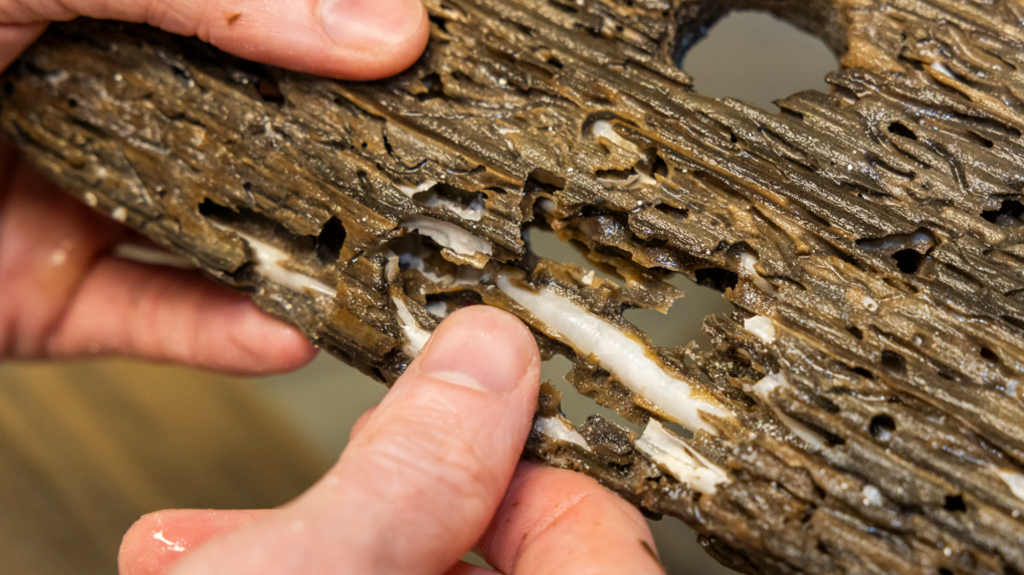
The clams grow by burrowing into waste wood and converting it into protein
Researchers said the aquaculture system for production was "completely" controlled, "eliminating" issues relating to water quality and food safety concerns when farming mussels or oysters.
The naked clam could also grow to a harvestable size in six months, compared to mussels and oysters which took up to two years, they added.
Dr David Willer, Henslow Research Fellow at the University of Cambridge’s Department of Zoology, said the system could be used in urban settings far from the sea.
He said: "Naked clam aquaculture has never been attempted before.
"We’re growing them using wood that would otherwise go to landfill or be recycled to produce food that’s high in protein and essential nutrients like Vitamin B12.”
Follow BBC News South West on X (formerly Twitter), external, Facebook, external and Instagram, external. Send your story ideas to spotlight@bbc.co.uk, external.
Related topics
Related internet links
- Published20 April 2023
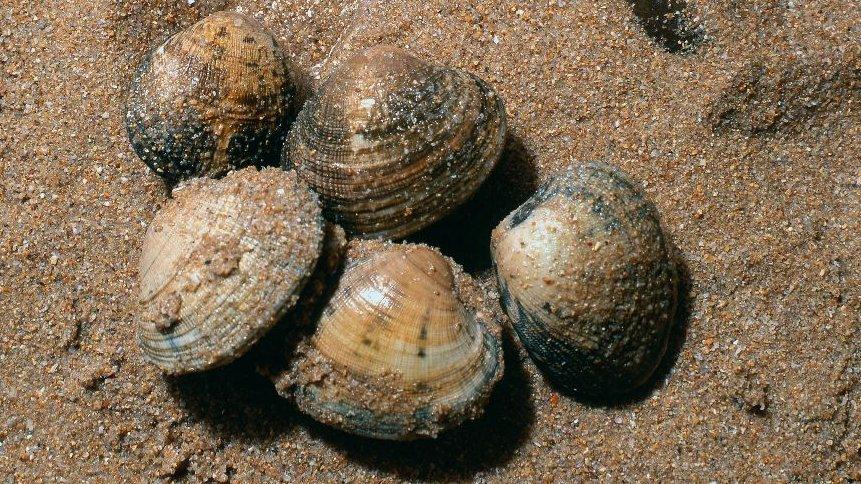
- Published11 August 2021
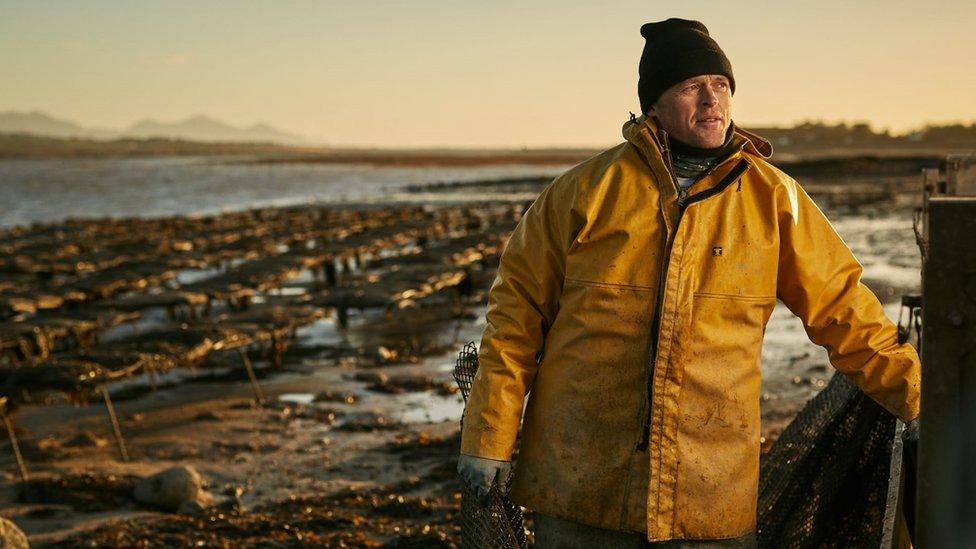
- Published18 April 2017
